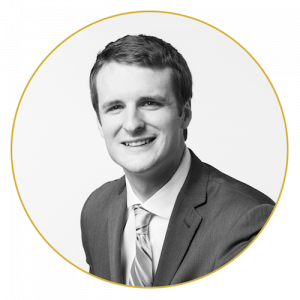
Earlier this month, the partners at FKG Consulting, Oklahoma’s largest government relations firm, merged with the campaign and marketing firm The Right Strategy Group and the PR shop Uppercase Strategies.
Their new public affairs and marketing firm, Amber Integrated (AI), intends to be the only firm in Oklahoma that offers the unique combination of lobbying, PR, marketing, research and political consulting under one roof. In this Q&A, the partners discuss the merger, why it needed to happen and why it’s reflective of broader trends in the advocacy and lobbying industries.
Amber Integrated occupies a unique space in Oklahoma now as a potential one-stop shop for political and marketing work. To the lobbyists here: Why did you feel the need to branch out and add these services?

Tammie Kilpatrick:
For a long time, organizations or companies have been able to effectively employ what we think of as “traditional” lobbying as the primary way to accomplish their policy goals. That is, a lobbyist could work with members of the House and Senate to help inform them about issues that are important to their client and then advocate for passage or defeat of specific legislation. That is changing for a number of reasons: social media has inundated lawmakers with other voices; term limits have resulted in significant turnover in the House and Senate which makes the process more challenging, and the balance of power at the Capitol has shifted away from a few committee chairmen towards rank-and-file members. Traditional lobbying is still important, but, as a lobbyist, you can’t be the only voice on an issue. You need more tools in the toolbox.

Ryan Kilpatrick:
Exactly. For our government relations team, adding those tools is what this is all about. If we are promoting an issue on behalf of a client, I don’t want a lawmaker to hear about that issue for the first time from me. I want them to hear about it from their constituents. They need to read about the issue in the paper and see it on TV. They should see it on Twitter and, in fact, be tweeting about it themselves. We live in a digital world where the news is always accessible on our smartphones. We want our clients to be effectively inhabiting that space.
What kind of strategies and analytics have you focused on while launching Amber Integrated?

Jackson Lisle:
All our marketing and campaign work has to be driven by research and validated by data. We have data points on every voter and consumer. Not using that data to inform how we communicate and who we communicate to is the equivalent of using a typewriter to write your reports. It’s not just old-fashioned, it’s going to slow you down and cost you (and your clients) money. When we launch a campaign, whether it’s to sell a product or to win an election, we are doing it with a message that we know will work, and we are targeting voters or consumers that we know will respond. That’s a powerful concept, and frankly it is underutilized.

Ryan Tupps:
One of the things we love to do is create predictive models that utilize our datasets and essentially give every potential voter or consumer a 0-100 score. So, based on a combination of our proprietary data and what is publicly available, I can assign you a number. Then we can choose how and if we target you with communications. A score of 100 means you are voting and you are voting for me, so I’m not going to spend money to activate you. But a score of 75 means you will probably vote, and if you vote, you’ll probably vote for me. That is a person we need to get in front of. Knowing all this doesn’t just make your campaign more effective, it also saves your clients money.
What are you most excited about as you launch Amber Integrated?

Bryan Fried:
I like when our work is successful and impactful. Obviously, that’s good for business, but it’s also good for the state. If you think about the push to modernize our alcohol laws, or properly fund nursing homes and health care, or even the creation of new jobs in Oklahoma by some well-known national tech firms, these are all things that we have been proud to play a role in. We have more tools at our disposal now to deliver more big wins that will move the needle for our clients and ultimately the state.

Spencer Guinn:
Bryan talked about moving the needle in the state, but I’m also excited to broaden our work beyond Oklahoma. We are starting on Day One with some big projects in other states, including the west coast, which would not be possible without this new firm. The great thing about the world of digital advocacy is it is not tethered to one location or state. We can just as easily run an effective media campaign in Phoenix as we can in Oklahoma City.

Alex Weintz:
I started my career at a polling and political consulting firm in D.C. before doing communications work in the governor’s office, and in some ways I feel like I’ve come full circle. I’m certainly looking forward to having access to real market research, voter surveys and some analytical tools to help drive effective messaging and campaigns. Our ability to deliver really creative and eye-catching content, whether it’s on social media or traditional media, has also increased dramatically. Deploying that content will really help to generate some buzz and ultimately victories for our clients. That’s what this is all about.
(Editor’s note: This piece is presented as part of an advertising package purchased by Amber Integrated in 2019.)




















